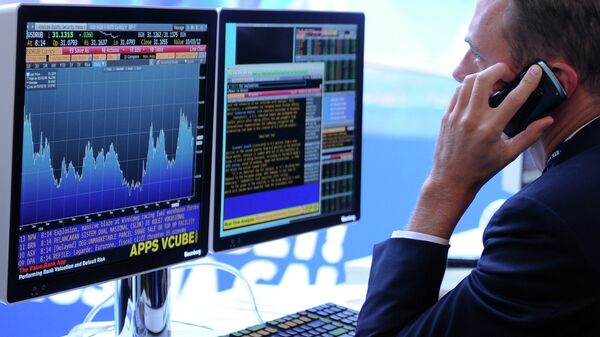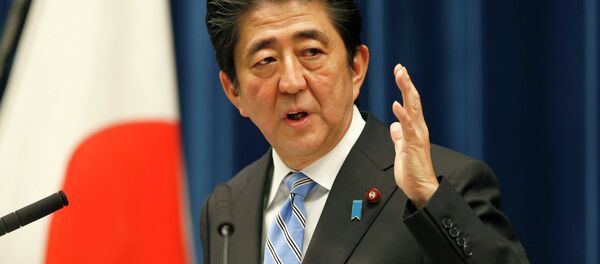MOSCOW, December 9 (Sputnik) – Stock markets retreated worldwide on alarming news from mainland China, where stocks plummeted the most since 2009 and Japan’s yen rose, prompting yet another wave of deflation scare, while in Europe the largest since 1987 stock decline in Greece prompted bearish sentiment across the region.
On such news MSCI Asia Pacific Index slid 0.6% in Hong Kong. Shanghai Composites dropped 5.4%, its record since August 2009 as a direct consequence of Beijing’s effort to get rid of the risky bonds. China’s financial sector suffered the biggest losses today with China Galaxy Securities Co. losing 13% of its stock.
Beijing’s actions have triggered a major turbulence in mainland China’s financial sector, suffering of liquidity shortage, while losses in Hong Kong were not that huge. The policy action “is the biggest drag on the market today as there’s a liquidity crunch,” Zhang Gang of the Shanghai-based China Central Securities Co. told Bloomberg. “Investors have been overly speculative and this irrational surge has resulted in a bigger slump, too.”
In Europe, stock markets retreated partly due to China’s struggle, however, investors’ concerns were provoked by an announcement by the Greek authorities of a snap presidential election coming. The euro-skepiticist ‘Syriza’ party is one of the distinguished favorites in the coming election. All this drove the Athens Stock Exchange down by 11.3%, which is its biggest one-session slump since November 1987. The Greek banking sector suffered the most with the National Bank of Greece losing 17.6% and Alpha Bank sliding 12.8%, according to Reuters.
“Markets have been looking for a trigger to take profits,” Raimund Saxinger of Frankfurt-Trust Investment GmbH told Bloomberg. “There is uncertainty, and if Greece is forced into new elections there is the risk that radical leftist parties will win a relative majority. This could have lots of negative implications for creditors and for banks.”
The banking sector was hit by the US lawsuit against Deutsche Bank, which was allegedly using illegal tax-evasion schemes. The US demanded $190 mln in taxes and related expenses, driving the German lender’s shares down 4%.
The markets in Europe are anticipated to be moving flat at best during the coming month as most stocks are still overvalued, while decisive stimulus action from the European Central Bank is explicitly lacking. Investors in both Europe and Asia are cautious, expecting decisive positive news to emerge in policy or the real economy.







